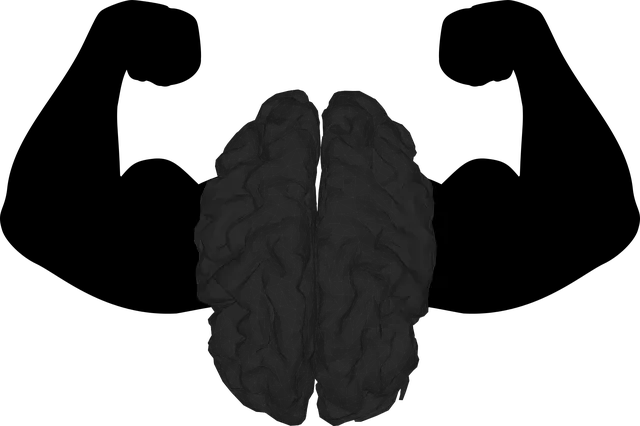Kaiser Lone Tree addresses stress as a multifaceted issue through specialized services like Stress Management Workshops using evidence-based practices. They advocate for comprehensive mental health support, offering inpatient care with CBT, mindfulness, and tailored interventions for unique patient needs. Their focus on building resilience through education equips individuals with long-term coping strategies for improved well-being, making Kaiser a leading choice for Lone Tree residents seeking specialized inpatient mental health services.
Stress management is a vital skill in today’s fast-paced world, and Kaiser Lone Tree offers a comprehensive approach through its inpatient mental health services. This article explores effective techniques to navigate stress, focusing on cognitive behavioral therapy (CBT) and mindfulness practices. We delve into how these evidence-based strategies, combined with personalized interventions, empower individuals to build resilience and prevent long-term stress. Discover how Kaiser Lone Tree’s holistic approach provides a safe space for comprehensive stress management, addressing the impact and causes of stress in a supportive environment.
- Understanding Stress: Unveiling the Impact and Causes at Kaiser Lone Tree
- Inpatient Mental Health Services: A Safe Space for Comprehensive Stress Management
- Evidence-Based Techniques: Cognitive Behavioral Therapy (CBT) and Mindfulness Practices
- Personalized Strategies: Tailoring Interventions to Individual Needs and Preferences
- Building Resilience: Long-Term Coping Skills for Effective Stress Prevention
Understanding Stress: Unveiling the Impact and Causes at Kaiser Lone Tree

At Kaiser Lone Tree, understanding stress involves recognizing its multifaceted impact on individuals’ well-being. Stress is not merely a fleeting emotion but a complex response triggered by various factors, both internal and external. It can stem from demanding work schedules, personal relationships, financial pressures, or even unexpected life events. The effects of chronic stress are profound, affecting mental health, physical vitality, and overall quality of life. Kaiser Lone Tree’s commitment to holistic care extends to addressing these concerns through specialized services.
Amongst the various offerings, Stress Management Workshops Organization plays a pivotal role in empowering individuals with effective strategies. These workshops delve into evidence-based practices aimed at improving emotional regulation and fostering resilience against stress. By participating in such initiatives, Kaiser Lone Tree ensures that its patients gain valuable tools to navigate life’s challenges, potentially preventing or mitigating the negative consequences of prolonged stress. Additionally, Mental Health Policy Analysis and Advocacy at Kaiser Lone Tree underscores the organization’s dedication to promoting comprehensive mental health support for all.
Inpatient Mental Health Services: A Safe Space for Comprehensive Stress Management

Inpatient Mental Health Services offer a specialized and safe environment for individuals seeking comprehensive stress management solutions. Organizations like Kaiser, with facilities in Lone Tree, provide dedicated programs tailored to address various mental health concerns, including stress-related disorders. These services are designed to foster resilience building through evidence-based practices. By immersing patients in a supportive setting, they can learn effective communication strategies and emotional intelligence skills, empowering them to manage stress effectively both within the program and beyond.
Inpatient programs facilitate intensive therapy sessions, group discussions, and individual counseling, allowing for profound personal growth. Participants gain insights into their triggers and develop coping mechanisms tailored to their unique needs. This holistic approach not only helps individuals regain control over their mental well-being but also equips them with the tools needed to navigate life’s challenges with enhanced emotional resilience.
Evidence-Based Techniques: Cognitive Behavioral Therapy (CBT) and Mindfulness Practices

Cognitive Behavioral Therapy (CBT) is a well-established evidence-based technique for managing stress and anxiety. This therapeutic approach focuses on identifying and challenging negative thought patterns, helping individuals develop healthier coping mechanisms. CBT has shown significant effectiveness in treating various mental health conditions, including depression and post-traumatic stress disorder (PTSD). By learning to recognize and change distorted thinking, people can reduce the intensity of their emotional responses to stressful situations, ultimately improving their overall well-being.
Mindfulness practices, another powerful tool in stress management, have gained popularity in recent years. These techniques encourage individuals to focus on the present moment without judgment, fostering a sense of calm and clarity. Research suggests that mindfulness meditation can reduce symptoms of stress, anxiety, and depression, promoting better mental health outcomes. Public awareness campaigns and self-care initiatives play a crucial role in encouraging people to explore these evidence-based practices, such as CBT and mindfulness, especially those available at facilities like the inpatient mental health services in Lone Tree, to enhance their resilience and overall quality of life.
Personalized Strategies: Tailoring Interventions to Individual Needs and Preferences

At Kaiser’s inpatient mental health facility in Lone Tree, understanding that each individual’s journey with stress is unique is key to effective treatment. Personalized strategies, tailored to one’s specific needs and preferences, have been shown to significantly enhance stress management. This approach involves a detailed assessment of lifestyle, work-life balance, coping mechanisms, and personal goals. By taking these factors into account, mental health professionals can design interventions that are not only effective but also sustainable in the long term.
For instance, some individuals may benefit greatly from mindfulness practices and positive thinking exercises, while others might find solace in creative outlets or structured stress management workshops. The Mental Health Policy Analysis and Advocacy group at Kaiser recognizes this diversity and strives to provide a spectrum of resources, ensuring that every patient has access to the tools that resonate best with their personal experiences. This individualized approach not only improves outcomes but also fosters a sense of empowerment and self-care among patients.
Building Resilience: Long-Term Coping Skills for Effective Stress Prevention

Building resilience is a key component of long-term stress management, especially for individuals seeking effective prevention strategies. At Kaiser’s inpatient mental health facility in Lone Tree, they emphasize the importance of teaching patients coping skills that extend beyond immediate relief. Mental Health Education Programs are designed to empower individuals with the knowledge and tools needed to navigate challenging situations, fostering self-reliance and adaptability.
Through Self-Awareness Exercises, patients learn to recognize triggers and develop healthy responses, enabling them to build a personal resilience toolkit. These exercises focus on mindfulness, emotional regulation, and problem-solving skills, ensuring individuals have practical ways to manage stress in various aspects of their lives. By investing time in Resilience Building, Kaiser’s programs not only address acute mental health concerns but also equip patients with lasting strategies for overall well-being.
Kaiser Lone Tree’s comprehensive approach to stress management, encompassing evidence-based techniques like CBT and mindfulness, offers a safe space for individuals to navigate and overcome stress. By understanding its impact and causes, and through personalized strategies that cater to diverse needs, Kaiser equips folks with long-term coping skills. This holistic method ensures that stress doesn’t just subside but is prevented effectively, demonstrating the institution’s commitment to mental wellness in the community. Moreover, their inpatient mental health services provide a crucial safe haven for those in need of intensive care, underscoring Kaiser’s multifaceted role in promoting well-being.






